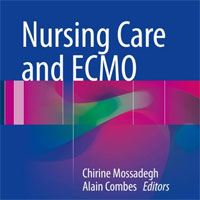Tag: ICU

Use of Machine Learning to Analyze Routinely Collected ICU Data
The rate of publication of studies using machine learning to analyze routinely collected ICU data is increasing rapidly. The sample sizes used in many published studies are too small to exploit the potential of these methods.... read more

Clinical Examination for the Prediction of Mortality in the Critically Ill
Clinical examination has reasonable discriminative value for assessing 90-day mortality in acutely admitted ICU patients. In our study population, a single, protocolized clinical examination had similar prognostic abilities... read more

Psychological Consequences of ICU Admission
For most patients and their families, admission to the intensive care unit (ICU) is an unanticipated event that causes substantial psychological distress. For patients, short- and long-term consequences include delirium,... read more

Identification of Subclasses of Sepsis that Showed Different Clinical Outcomes and Responses to Amount of Fluid Resuscitation
Sepsis is a heterogeneous disease and identification of its subclasses may facilitate and optimize clinical management. This study aimed to identify subclasses of sepsis and its responses to different amounts of fluid resuscitation.... read more

Epidemiology of Sepsis and Septic Shock in Critical Care Units
A comparison between sepsis-2 and sepsis-3 populations using a national critical care database. In an ICU database, compared with Sepsis-2, Sepsis-3 identifies a similar sepsis population with 92% overlap and much smaller... read more

Impact on Patient Outcomes of Pharmacist Participation in Multidisciplinary Critical Care Teams
Including critical care pharmacists in the multidisciplinary ICU team improved patient outcomes including mortality, ICU length of stay in mixed ICUs, and preventable/non-preventable adverse drug events. From the 4,725... read more

Preventing Surgical Site Infections Related to Abdominal Drains in the ICU
Surgical site infections are significant contributors to health care–associated infections. Nursing interventions may help decrease the incidence of surgical site infections, particularly in regards to the management of... read more

Laryngeal Injury and Upper Airway Symptoms After Oral Endotracheal Intubation With Mechanical Ventilation During Critical Care
Laryngeal injury from intubation is common in the ICU setting. Guidelines for laryngeal assessment and postextubation surveillance do not exist. A systematic approach to more robust investigations could increase knowledge... read more

Prophylactic Haloperidol Effects on Long-term Quality of Life in Critically Ill Patients at High Risk for Delirium
Prophylactic haloperidol use does not affect long-term quality of life in critically ill patients at high risk for delirium. Several factors, including the modifiable factor number of sedation-induced coma days, are associated... read more

Randomized Clinical Trial of an ICU Recovery Pilot Program for Survivors of Critical Illness
This randomized pilot trial found that a multidisciplinary ICU recovery program could deliver more interventions for post ICU recovery than usual care. The finding of longer time-to-readmission with an ICU recovery program... read more

Estimated Effects of Early Diuretic Use in Critical Illness
The main objectives of this study was to estimate the effects of diuretic use during the first 24 hours of an ICU stay on in-hospital mortality and other clinical outcomes including acute kidney injury (AKI) and duration... read more

The Role of Central Venous Oxygen Saturation (ScvO2) as an Indicator of Blood Transfusion in the Critically Ill
Transfusion of red blood cells is an everyday practice in critical care with the primary aim of restoring adequate tissue oxygenation. However, blood transfusion may also be harmful and costly, therefore a so called restrictive... read more

Out-of-Hospital Cardiac Arrest Survivors Need Cardiological and Neurological Rehabilitation
Most survivors of out-of-hospital cardiac arrest (OHCA) suffer from cardiologic symptoms and approximately half of them experience cognitive problems because of hypoxic brain damage. Symptoms of anxiety and depression... read more

Extubating Ventilated Patients on Vasoactive Infusions is Safe
In a large single centre study, 21% of intubated patients who received infusions of vasoactive infusions while mechanically ventilated were extubated for the first time while still receiving them. Coincident with their earlier... read more








